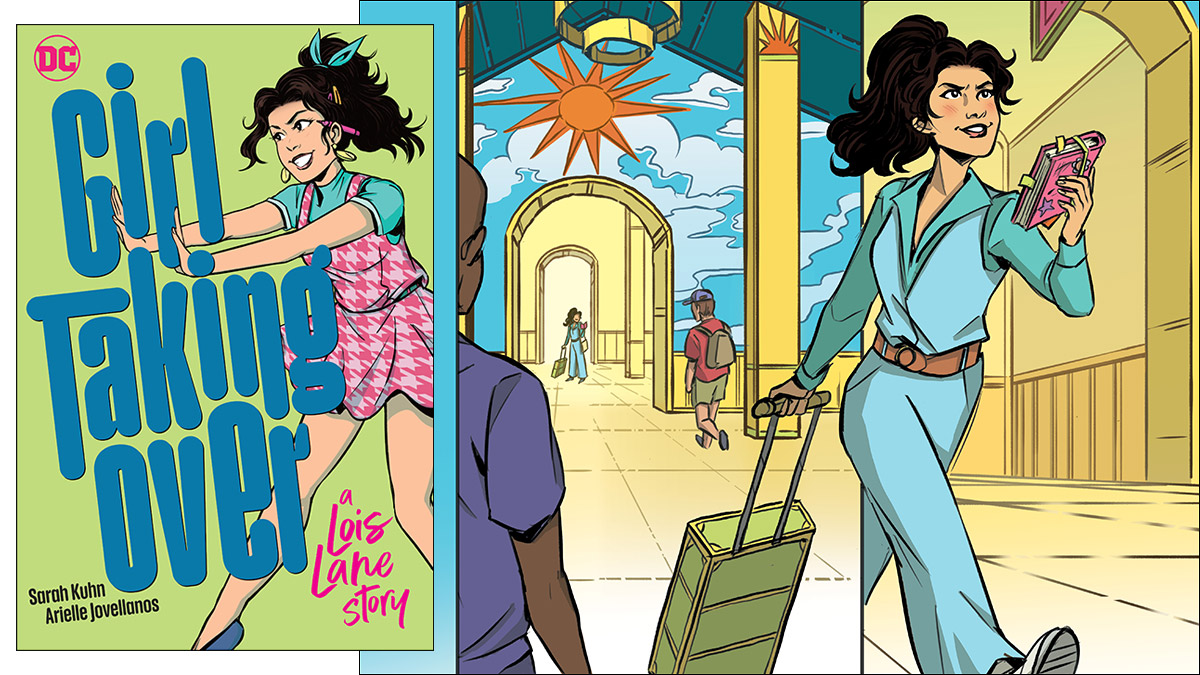Guest Post by Sarah Kuhn

There are certain scenes from stories that stay with us forever, their lines looping through our brains like the stickiest of earworms. I can recite sections of the '80s era
Anne of Green Gables movies word for word. I know every beat, every breath, in the first Princess Leia/Han Solo kiss scene like the back of my hand. And occasionally, my mind tubes will just randomly call up the post-teaser scene from season 2, episode 2 of
Star Trek: Deep Space Nine, "The Circle," and play it like it's my favorite song.
In this scene, tough-as-nails Major Kira Nerys (the iconic Nana Visitor) has been recalled to Bajor and is in the process of packing all her stuff. As she packs, she is constantly interrupted by her colleagues on the space station. They want to say goodbye, they want to give her gifts, they want to encourage her to challenge the reassignment and stay at her current post on the station.
"Fight for what you want!" shapeshifting security chief Odo growls at her. "It's what you do best."
As the door keeps chiming and more and more people pile into Kira's cramped quarters, the chaos builds to a perfectly calibrated pitch -- the dialogue snaps, the ensemble chemistry sizzles, and Kira's irritation grows from kindling to wildfire. Just as she's about to totally lose it and yell at all of them to get the hell out, yet another person enters, someone who's
not a space station colleague -- hunky Bajoran religious leader Vedek Bareil. The hijinks bubble is pierced, the one-liners cease. Bareil apologizes for interrupting.
"No, please come in," Kira says hastily. "These are my..."
She pauses, the tension draining from her body. She looks around at all the faces who have intruded on her space, who won't shut up and go away. Her eyes soften, and a slight smile plays around the corners of her mouth.
"These are my friends."
This is a huge realization for Kira, a prickly freedom fighter with a hardscrabble past who never thought she would truly have friends -- or that she needed them. At that point, the beginning of season 2,
DS9's varied, clashing ensemble of characters had fused into something she gave up on long ago: they are a family. A community. An assemblage of personages who will always show up for each other, even if it's in the form of totally irritating the friend they're trying to support.
I love this scene. It's like its own little story, its own little arc, each perfectly composed beat playing out to a satisfying conclusion. I love it
so much, that I recently realized I've written a version of this type of scene in nearly every one of my books. My
Heroine Complex books, in particular, always have this scene: the rag-tag crew of misfits that is my superheroine team have become their own kind of found family, and there's always some moment where they just have to pile into the protagonist's room and offer their own kind of chaos-packed support for whatever she's going through. The latest book,
Haunted Heroine, actually
starts with this scene, all of fire-wielding, pregnant superheroine Evie Tanaka's friends cramming themselves into a tiny bathroom to check on her after some unceremonious puking.
In a way, it
is my favorite song.













